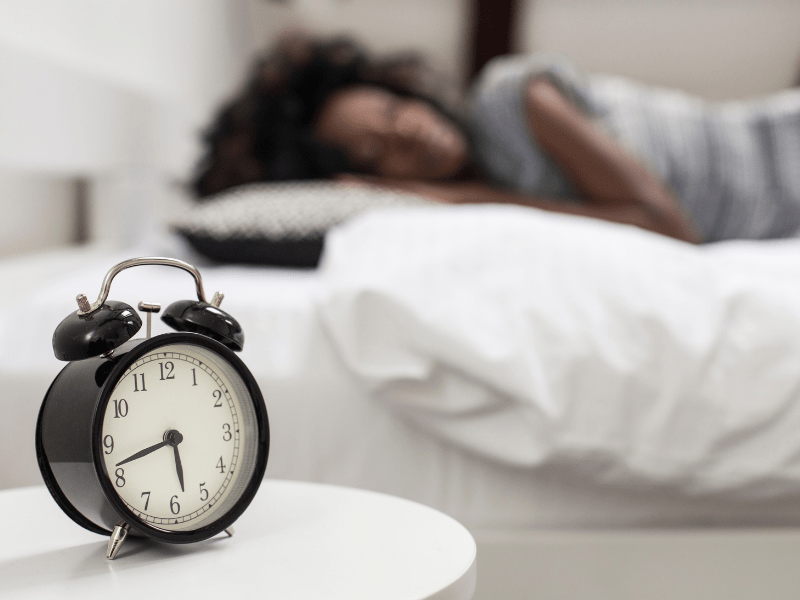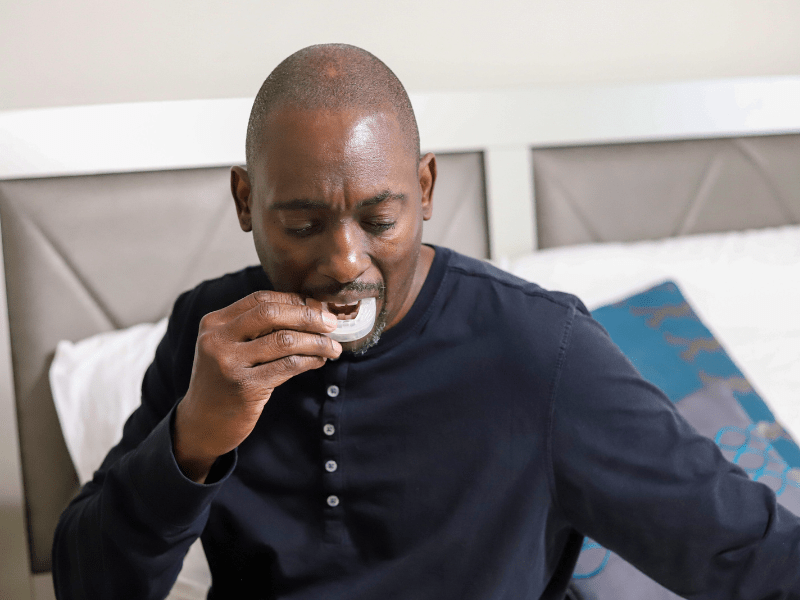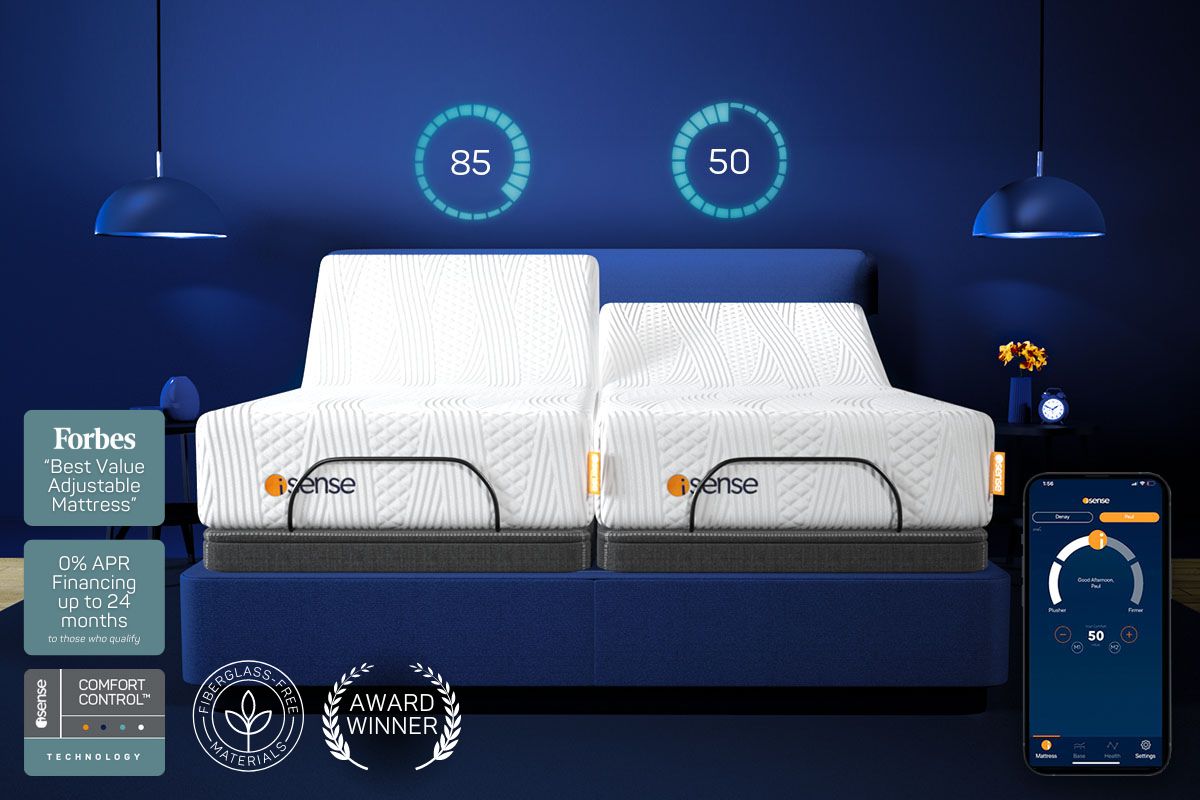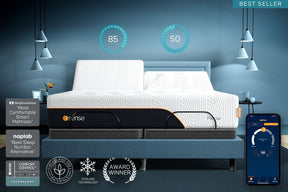Introduction
Are you often left wondering if your persistent sleep apnea condition is something written in your genes? Research suggests that about 40% of obstructive sleep apnea cases may indeed have a genetic connection.
This article sheds light on the complex relationship between genetics and sleep apnea, cutting through scientific jargon to make it easily understandable. Keep reading; this insight could be the key to unlocking better management of your sleep disorder. Or if you want to know can a bad mattress cause back pain, then check out that article.
Genetic Factors in Sleep Apnea
Sleep apnea, particularly obstructive sleep apnea, often shows an inherited pattern. Although the exact process of sleep apnea inheritance is not fully understood yet, research suggests that genetic factors play a substantial role in its development. Experts believe that about half of those with this condition have a family history pointing to hereditary predispositions.
Genetic components are likely intertwined with environmental aspects for most individuals suffering from sleep disorders like obstructive sleep apnea. These genetic factors could contribute to specific physical characteristics such as obesity or particular facial features which can increase the risk of airway obstruction during sleep. There's also evidence showing that certain genes may effect how your body regulates your breathing during slumber.
Studies indicate approximately 40 percent of cases attribute their obstructive sleep apnea symptoms to genetics, raising the possibility it could be a hereditary condition. That said, central sleep apnea usually originates from non-genetic causes and isn't typically considered inheritable.
Therefore, understanding these inherent risk factors in conjunction with recognizing potential environmental influences would assist in early diagnosis and treatment strategies for those affected by this serious yet manageable disorder.
Testing and Research on Sleep Apnea Genetics
Research and testing are ongoing to better understand the genetic factors involved in sleep apnea. Here are some important points to know:
- Scientists have been conducting studies to identify specific genes that may contribute to the development of sleep apnea.
- One approach involves conducting genome-wide association studies (GWAS) to analyze the genetic variations present in individuals with sleep apnea compared to those without the condition.
- Through GWAS, researchers have identified certain gene variations that may increase the risk of developing sleep apnea.
- These genetic variations are often associated with traits such as obesity, craniofacial abnormalities, and abnormalities in upper airway structure or function.
- In addition to identifying individual genes, researchers are also interested in understanding how these genes interact with each other and with environmental factors.
- This approach involves studying gene-gene interactions (epistasis) and gene-environment interactions.
- By uncovering these complex relationships, scientists hope to gain a more comprehensive understanding of the underlying mechanisms of sleep apnea.
- Genetic testing is not yet widely available for diagnosing sleep apnea, but ongoing research may lead to improved diagnostic tools in the future.
Conclusion
In conclusion, while the exact genetic factors contributing to sleep apnea are still being studied, research suggests that genetics play a significant role in this condition. Approximately 40 percent of cases may have a genetic link, making it potentially hereditary.
Although not all instances of sleep apnea are genetic, understanding the influence of genetics can aid in early detection and treatment for those at risk. Further research is needed to fully comprehend the complex interplay between genetics and environmental factors in sleep apnea development.
FAQs
1. Is sleep apnea genetic?
Yes, there is evidence to suggest that sleep apnea can have a genetic component. People with a family history of the condition may be at a higher risk of developing it themselves.
2. Can sleep apnea skip generations in families?
While there is a genetic component to sleep apnea, it does not necessarily mean that every generation will be affected. Some individuals may inherit the predisposition for the condition but not actually develop symptoms.
3. Are there specific genes associated with sleep apnea?
Researchers have identified certain genes that are potentially linked to an increased risk of developing sleep apnea. However, more studies are needed to fully understand the role of genetics in this condition.
4. Can lifestyle factors influence whether or not someone with a genetic predisposition develops sleep apnea?
Yes, lifestyle factors such as obesity, smoking, and alcohol consumption can contribute to the development and severity of sleep apnea even in individuals who have a genetic predisposition for the condition. Making healthy lifestyle choices can help reduce the risks associated with this disorder.
iSense offers comfort you control with adjustable firmness mattresses. Experience customized firmness with twenty adjustable firmness settings that deliver consistent pressure relief from head to toe. Not sure? Try it risk-free for 180 nights here






















